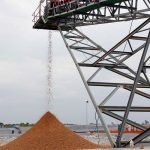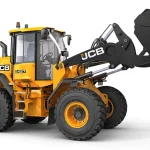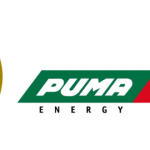The positive climate for mined commodities – and battery minerals in particular – is giving the Democratic Republic of Congo (DRC) great opportunities to leverage its resource wealth. However, there are numerous burning issues that mining companies there are facing.
These range from social and environmental impacts, mine closure, mineral resource and reserve estimates and skills development, explains engineering consultancy firm SRK Consulting partner and principal environmental scientist Wouter Jordaan.
ADVERTISEMENT
“The DRC has long been an exciting mining destination, and our SRK Consulting Congo practice has seen considerable progress over the ten years since its establishment,” says Jordaan.
“Among the issues we are working on with clients is the relationship between mining companies and communities.”
ADVERTISEMENT
An important aspect of this is the regulatory requirement for a social development plan that is developed in consultation with communities and stakeholders. SRK Consulting Congo was instrumental in developing the first such Cahier de Charge (Social Term Sheet) to be approved by government for a mining client in the country.
“There is often a cultural and communication gap between mines and communities that makes the necessary levels of collaboration difficult,” he says.
“We have seen that the industry often needs expert local support in building appropriate relationships with communities and stakeholders. SRK is well positioned to do this, [owing] to our established presence in the DRC – as well as in countries like China who are very active on the DRC mining scene currently.”
Compliance Focus
Mine closure is also a growing issue, which is broadening to include the need for ‘social transitioning’ to a post-mining phase. In this regard, the DRC industry’s current focus tends to be on compliance with the environmental aspects of closure, through the establishment of a fund to be drawn on for rehabilitation at closure.
Jordaan notes that mines start to provision for such a fund at a conceptual level during the feasibility stage.
“This approach ensures that the financial guarantee is in place, but the closure plan itself is often not very detailed,” he says.
“Moreover, these plans do not currently pay much attention to the practicalities of social transitioning towards closure. Good practice today encourages mines to start very early in their engagement with communities about closure, as the resilience of livelihoods cannot be built in just five to ten years.”
He points out that increased exploration work in the country, both for new projects and to expand existing operations, has also heightened the need for independent and accurate mineral resource and reserve estimations. Various codes are used in the DRC, depending mainly on where the project owner is located or listed.
Tailings Dams Regulation
International standards are increasingly being applied in tailings dam management globally, and there is expected to be greater attention paid to these in the DRC. The Global Industry Standards for Tailings Management (GISTM) have set a compliance deadline of August 2023 for all facilities with ‘extreme’ and ‘very high’ potential consequences of failure.
“There are quite a few tailings dams in the DRC which can be classified as ‘extreme’ and ‘very high’ in terms of the potential environmental and social consequences of an incident,” he says. “This means that they will be under some pressure in coming months to finalise their compliance measures, while other tailings dams in lower categories will have to conform with the GISTM within two years.”
He highlights that DRC regulations focus mainly on environmental aspects such as water management, dust emissions and air quality – while global standards have gone much further. As the mining industry progresses down its sustainability journey, mining companies are increasingly embracing international best practice to maintain their social licence and avoid reputational risk.
Fast Paced Adaptations
SRK Consulting MD Andrew van Zyl emphasises the pace at which mining has been adapting to new challenges and expectations in recent decades. As the sector better understands its impacts, it is continuously improving the way it runs operations – including the development of local skills.
“Local regulations around Africa are now making the localisation of skills and supply chains more of a priority,” says Van Zyl. “Like all the practices in our global network, SRK Consulting Congo is locally staffed and owned, and builds its skill levels and disciplines on an ongoing basis.”
The office’s depth of experience in mining engineering and environmental, social and governance issues gives it one area of focus – but it is also involved in other fields and is always looking to boost its geotechnical and geohydrological capacity.
The SRK business model facilitates intense knowledge sharing between its global offices, based on collaboration on various projects. This leads to the building of specialised skills to strengthen the local capacity of the mining industry.















